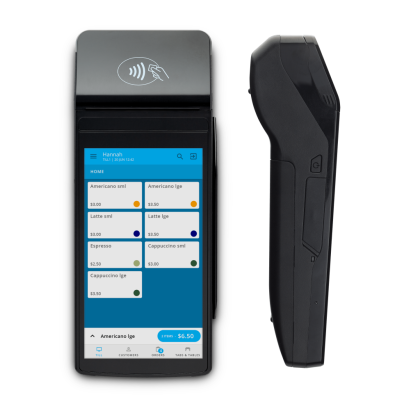Third-Party Payment Processors: What Are They & How Do They Work
If you're running a business, you know how important it is to accept payment from your customers. But have you ever stopped to consider how those payments are actually processed? That's where third-party payment processors come in.
Third-party payment processors are companies that handle the technicalities of accepting and processing various payment methods on behalf of businesses. They provide a secure and convenient way for businesses to accept online, in-store, or mobile payments.
In this guide to third-party payment processors, you'll learn what they are, how they work, and the advantages and disadvantages of using these payment processing services for your business. Whether you're just starting out or an experienced business owner, we hope this information will be useful.
Glossary
Before we dive into the topic of third-party payment processors, it's helpful to define some key terms that we'll be using throughout the blog. Here's a glossary of some common payment processing terms:
- Merchant account/merchant accounts: A merchant account is an account set up by a business to accept credit cards and other forms of payments from customers. Businesses need to have this type of account in order to process payments, as it allows them to securely and conveniently receive payments from their customers.
- Merchant account provider: Merchant account providers offer merchant accounts to businesses. Merchant accounts are a type of bank account that allows businesses to accept credit card and debit card payments.
- Payment processing companies: Payment processing companies are businesses that handle the technicalities of accepting and processing various payment methods on behalf of merchants. These companies may offer a range of services, including the ability to accept card payments, debit card, and digital wallet payments, as well as the use of their own merchant account to process transactions.
- Payment gateway: A payment gateway is a software platform that processes and verifies online transactions. It acts as a secure connection between a merchant's website and the payment processing company.
- Integrated payments: Integrated payments refer to the integration of payment processing capabilities into a point of sale (POS) system or other business software. This allows businesses to process payments directly within their system rather than using a separate payment processing service.
- Third-party payment processing: Third-party payment processing refers to the use of a payment processing company to handle the technicalities of accepting and processing various payment methods on behalf of a business. This can include using a payment gateway and merchant account to process transactions.
These are just a few of the terms you may come across in our blog when learning about payment processing. Now let's get started on our discussion of third-party payment processors!
What is a third-party payment processor?
A third-party payment processor is a company that handles the technical aspects of accepting and processing payments on behalf of businesses. They provide secure, reliable, and convenient ways for businesses to accept payments from customers, including those without a merchant account or the resources to handle payment processing themselves.
Third-party payment processors offer a range of services to merchants, including the ability to accept credit card, debit card, and online payments, as well as the use of their own merchant account or merchant accounts to process transactions. Whether you're a small business owner or a large corporation, a third-party payment processor can be a valuable asset to your business, streamlining your payment processing and helping you to better serve your customers.
How do third-party payment processors work with POS systems?
Integrating a third-party payment processor with your POS system allows you to securely accept customer payments and expand your payment options. After choosing a POS program for your business, you can easily add the third-party payment processor as an additional option when setting up your checkout process. This integration will allow customers to select their preferred method of payment and will enable your POS system to securely process these payments using the third-party's merchant account or multiple merchant accounts.
For example, suppose you own a retail business. Your retail POS system can be integrated with a third-party payment processor such as PayPal or Paypal alternatives like Stripe so that customers can select either of these payment methods when checking out. Your POS system will then securely process these payments using the merchant account of the third-party payment processor, transfer the funds to your accounts, and generate an appropriate receipt for the customer.
Ultimately, this streamlined process allows you to focus on running your business and providing excellent customer service while the third-party payment processor handles the technicalities of how to process payments.
TIP: Check out our guide on payment gateways vs payment processors to learn more.

Payment Processing Services Made Simple
- One flat rate, no matter the card
- One reporting destination
- One support team, available 24/7
Advantages of using third-party payment processors with POS systems
There are several advantages to using third-party payment processors with your POS system. We're going to run you through a few of the most important ones:
1. Increased security for both parties:
By using encryption and other advanced security technologies, third-party payment processors keep customer data safe. This means that your customers can rest assured knowing their data is protected. It also lowers the risk of fraud or identity theft, which can be a major problem for businesses that accept payments online or through a mobile device. This can give both parties peace of mind when it comes to payment processing, especially when it comes to being able to accept credit cards.
TIP: For more information on payment processing, check out our how does payment processing work guide!
2. Convenience for customers:
Third-party payment processors also offer convenience for customers. With so many payment options available, customers can choose the best method for their needs, whether you need to accept credit card payments, debit card payments, or digital wallet transactions. This can lead to higher customer satisfaction and loyalty.
3. Ability to accept a wider range of payment options:
By integrating a third-party payment processor with your POS system, you will be able to accept payments from customers using a variety of different payment methods. This includes credit and debit cards, digital wallets, eChecks, and more. This makes it much easier for customers to pay you and increases the likelihood of repeat business.
4. Streamlined transaction process for the business:
Using a third-party payment processor with your POS system streamlines the entire payment processing process. You don't have to worry about manually entering customer information or dealing with customers who have declined payments, as the payment processor handles all this. This helps save time and reduces the need for manual labor.
Disadvantages of using third-party payment processors with POS systems
It's important to be aware of the potential drawbacks that come with using a third-party payment processor. Here are some of the most common:
1. Fees for using the service:
Third-party payment processors typically charge fees for their services. These fees can include a transaction fee, monthly fees, setup fees, cancellation fees, or a combination of these. Here’s an explanation for each type of fee:
A transaction fee (or transaction fees) are usually a small percentage of the total transaction amount and are charged each time a payment is processed. For example, a payment processor may charge a 2.9% + $0.30 fee for each credit card transaction.
Monthly fees are a flat fee that is charged on a recurring basis, usually on a monthly or annual basis. These fees may cover the cost of maintaining the payment processor's infrastructure and providing customer support.
Setup fees are one-time fees that may be charged when you first sign up for a payment processing service. These fees can cover setting up your account and integrating the payment processor with your business.
Cancellation fees may be charged if you choose to cancel your payment processing service before the end of your contract period. These fees can vary depending on the provider and the terms of your contract.
It's important to carefully consider the fees that a payment processor charges before signing up for their service. These fees can add up over time and can affect your bottom line. By understanding the different types of fees that may be charged, you can make an informed decision about which payment processor is the best fit for your business.
TIP: Learn more about credit card processing fees in our handy guide! You could also remedy this by offering cash discounting, our guide on this will tell you how.
2. Potential for fraud or disputes:
Using third-party payment processors can also unfortunately increase the risk of fraudulent transactions or disputes between customers and businesses. While payment processors have measures in place to prevent fraudulent activity, it's still possible for fraud to occur. This can result in financial losses for the business and can damage the business's reputation.
Similarly, disputes between businesses and customers may arise, and the payment processor may be involved in resolving these issues. These disputes could be related to charges on a customer's credit card, issues with the quality of goods or services, or other issues. Resolving these disputes can be time-consuming and may require the involvement of the payment processor and potentially even legal action.
It's important for businesses to be aware of the potential risks of fraud and disputes and to have a plan in place should any issues arise. This may include working with the payment processor to resolve disputes or implementing additional security measures to prevent fraud. Businesses should also be prepared to handle the potential financial losses that may result from fraud or disputes and to manage any damage to their reputation. By being proactive and taking steps to mitigate these risks, businesses can protect themselves and their bank account from potential losses.
3. Dependence on third-party service for processing transactions:
Using a third-party payment processor can also create a dependence on that service for processing transactions. If the payment processor experiences technical issues or goes out of business, it can disrupt the business's ability to accept payments and transfer funds to its bank account. Businesses should consider this risk when choosing a payment processor and have contingency plans in place.
Final Thoughts
Overall, using third-party payment processors for POS systems can be a great way to improve customer convenience and boost security. However, there are some potential drawbacks to consider before deciding on a payment processor for your business, such as the potential for fees, fraud, and disputes.
Ultimately, it is up to you to weigh the pros and cons of using a third-party payment processor with your POS system and decide if it is right for your business.
If you'd like to know more about Epos Now payments, get in touch.




